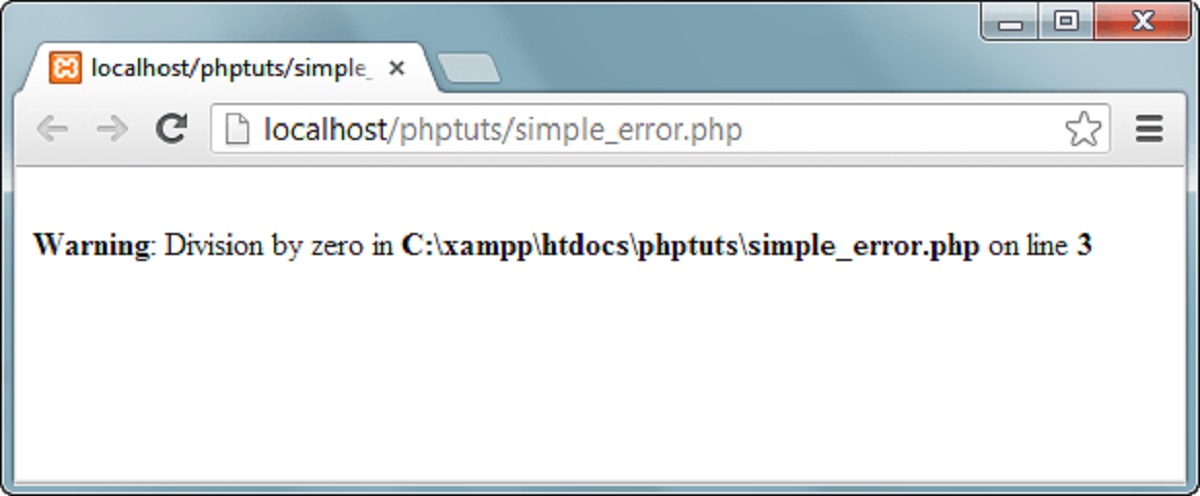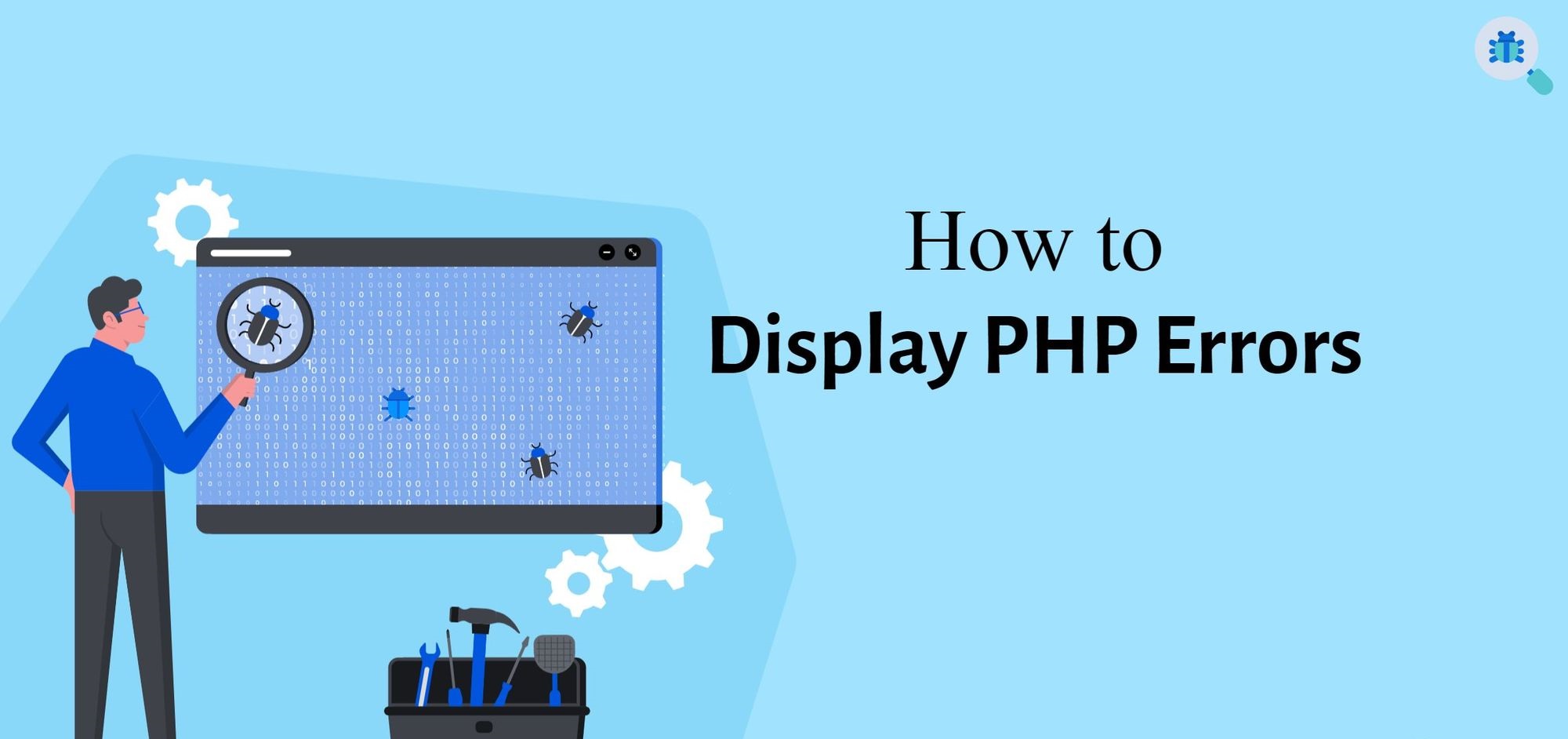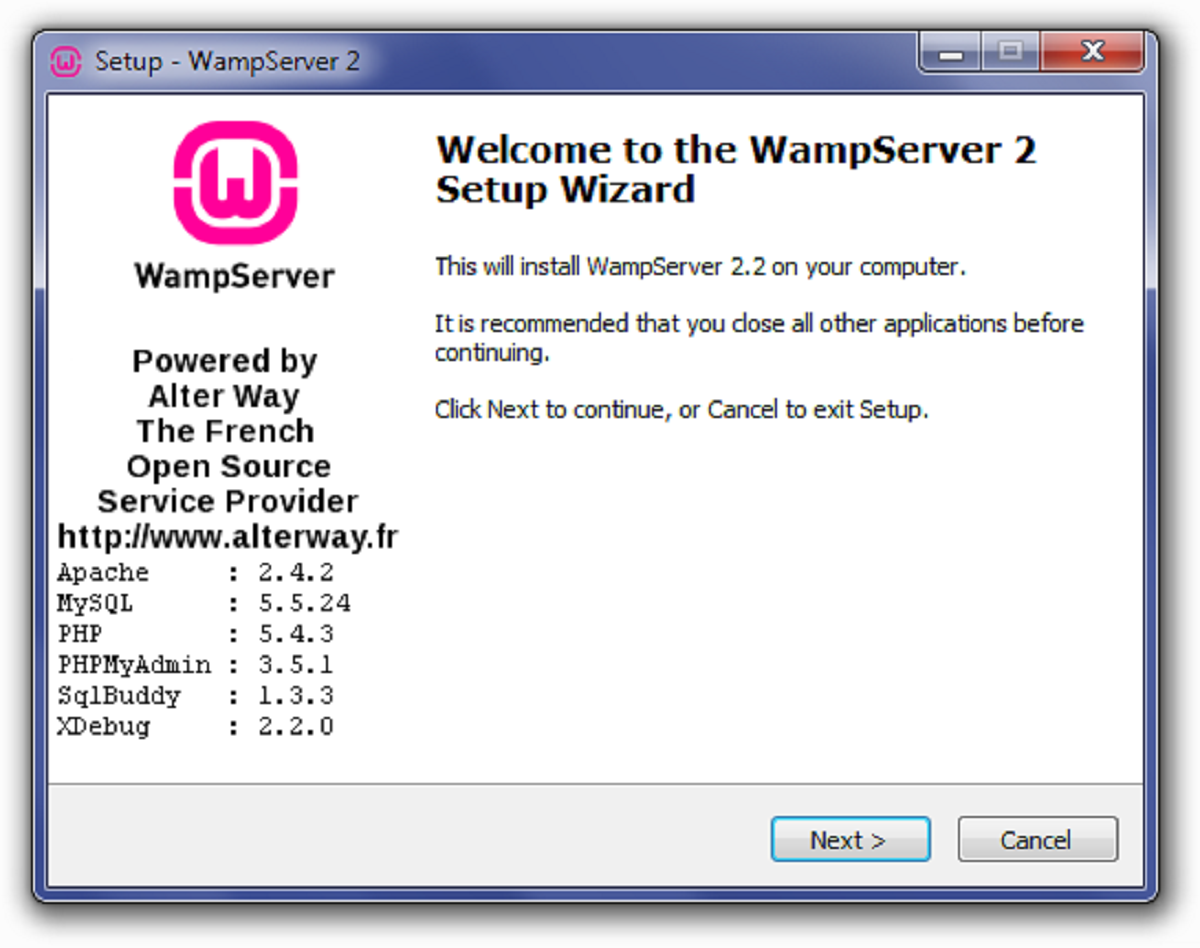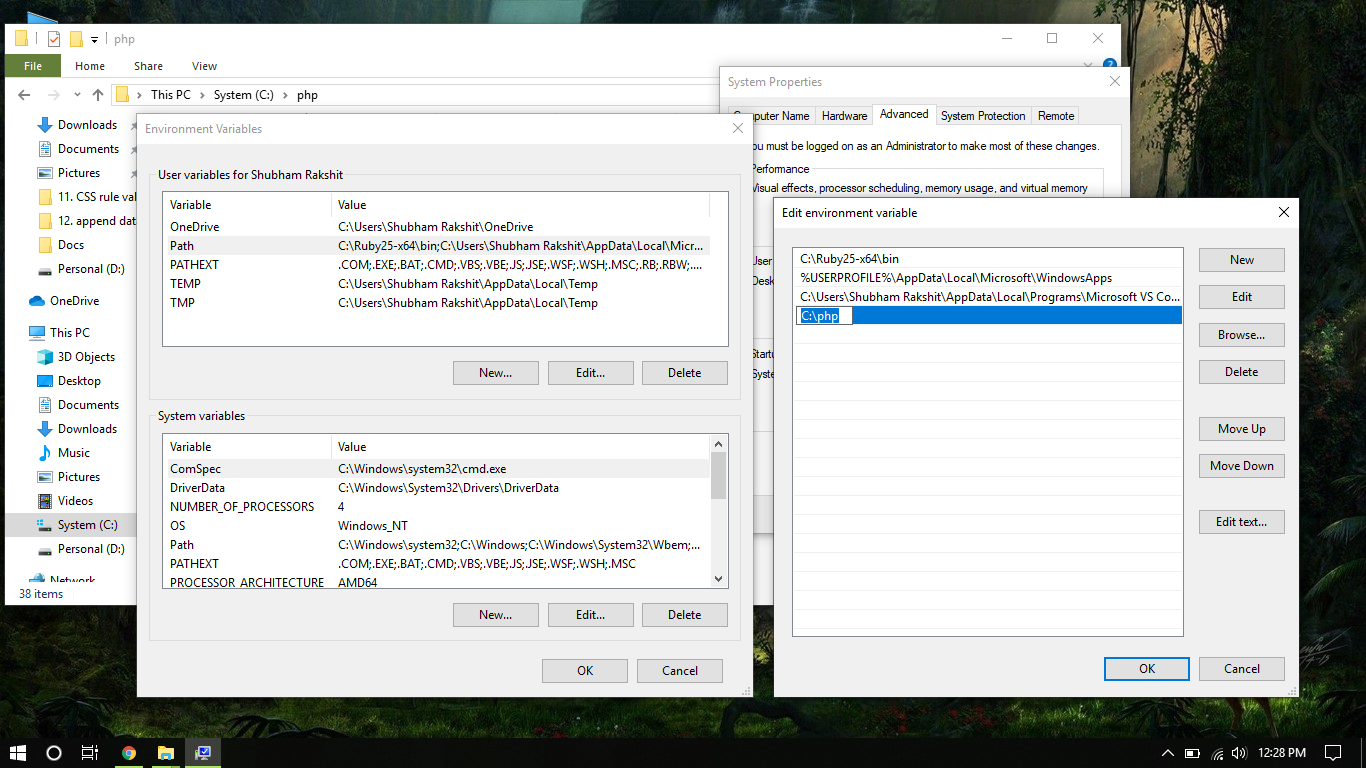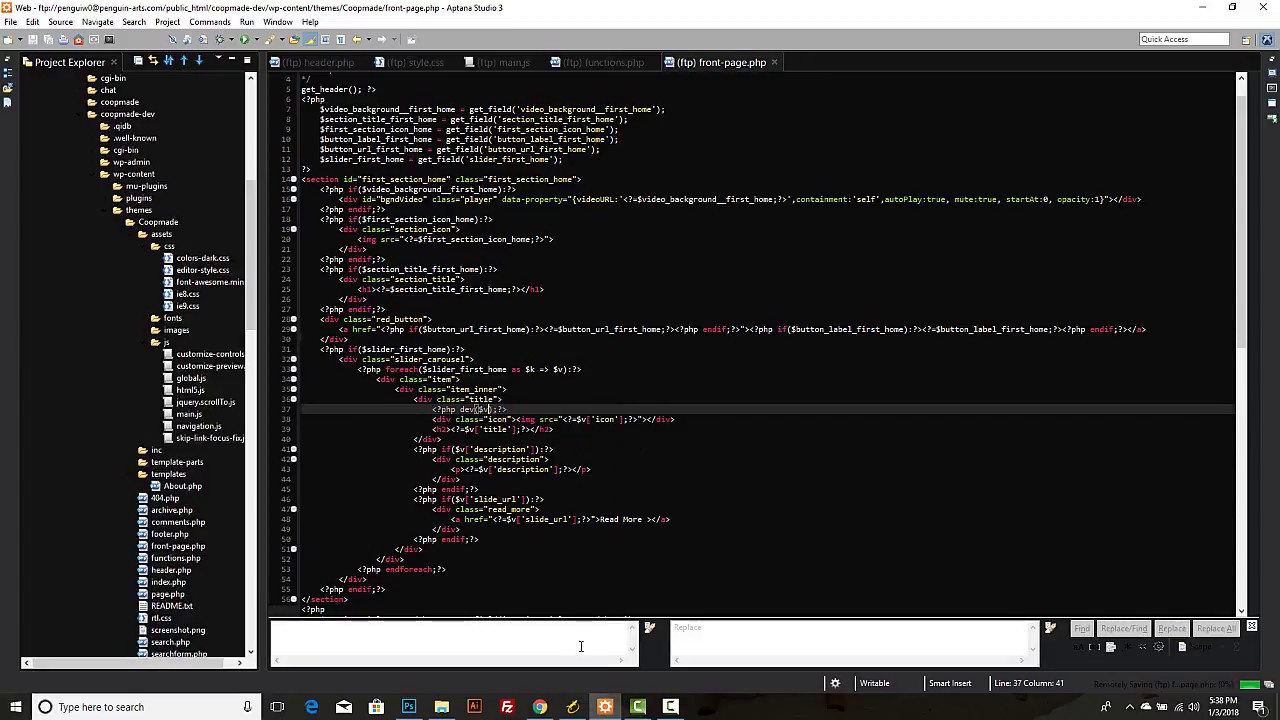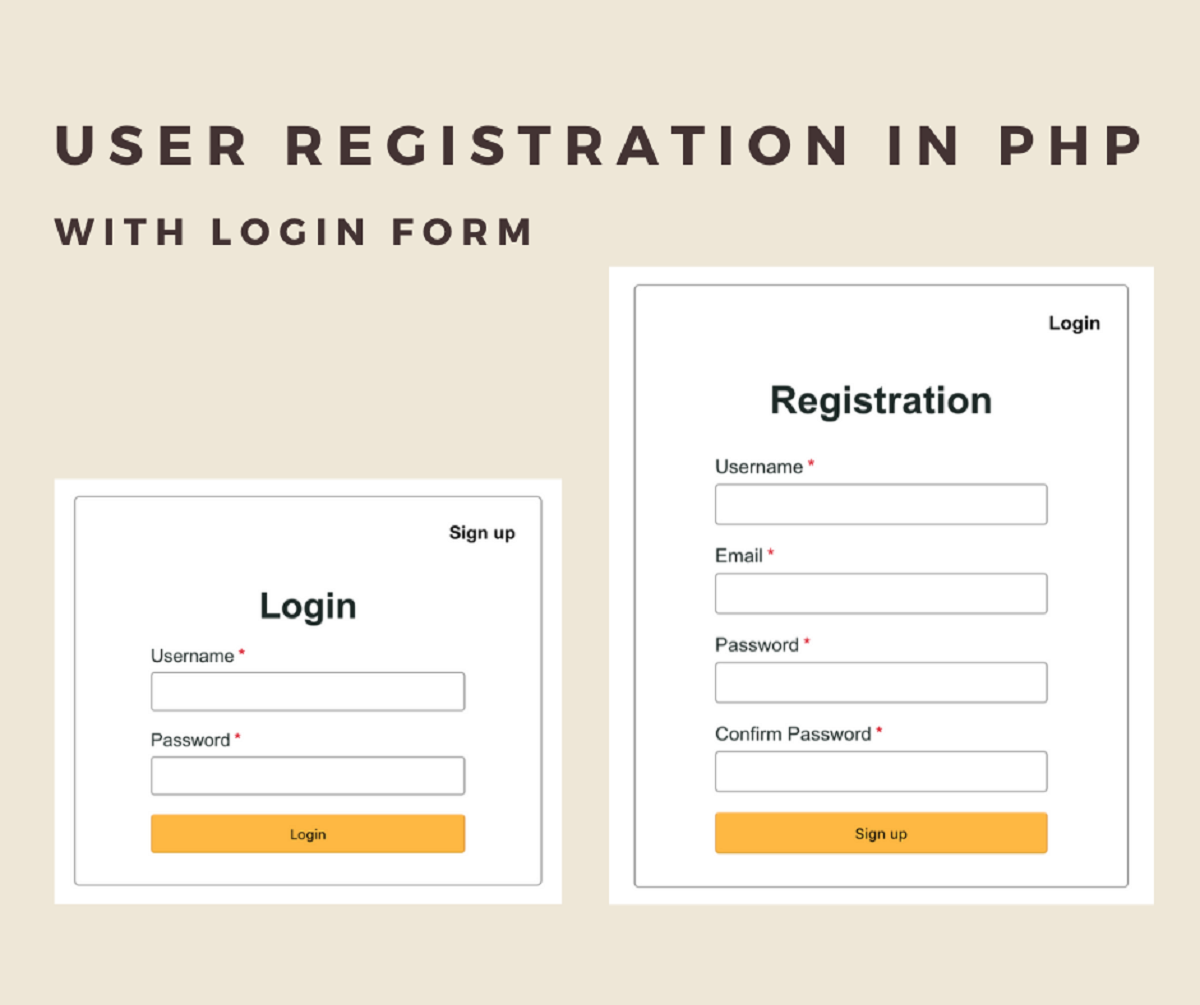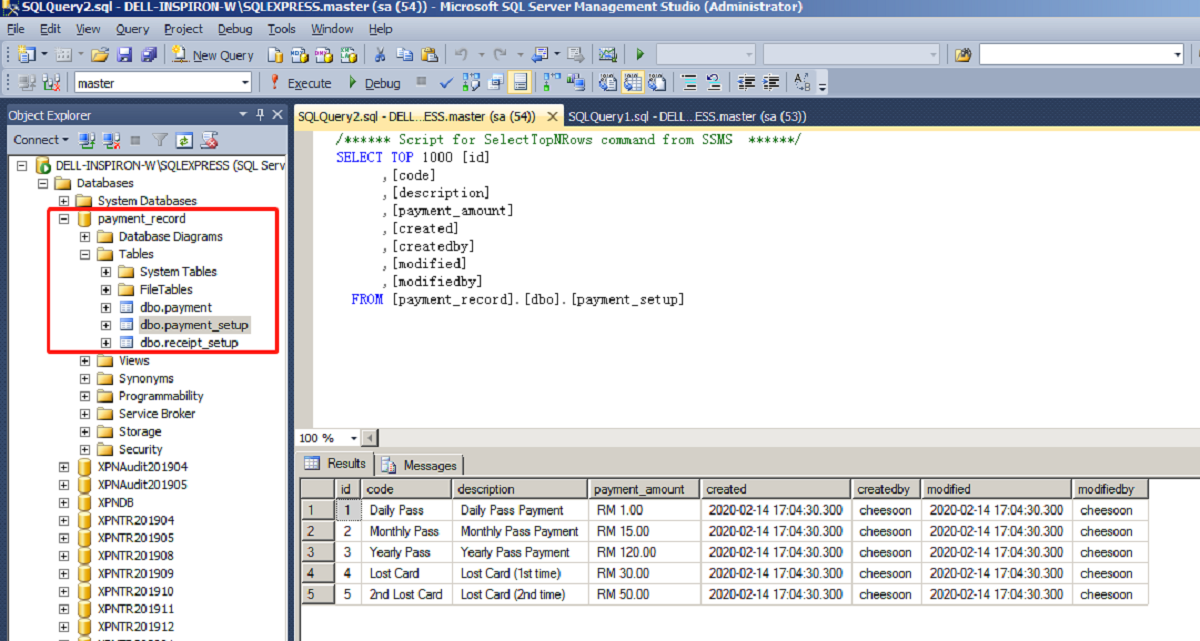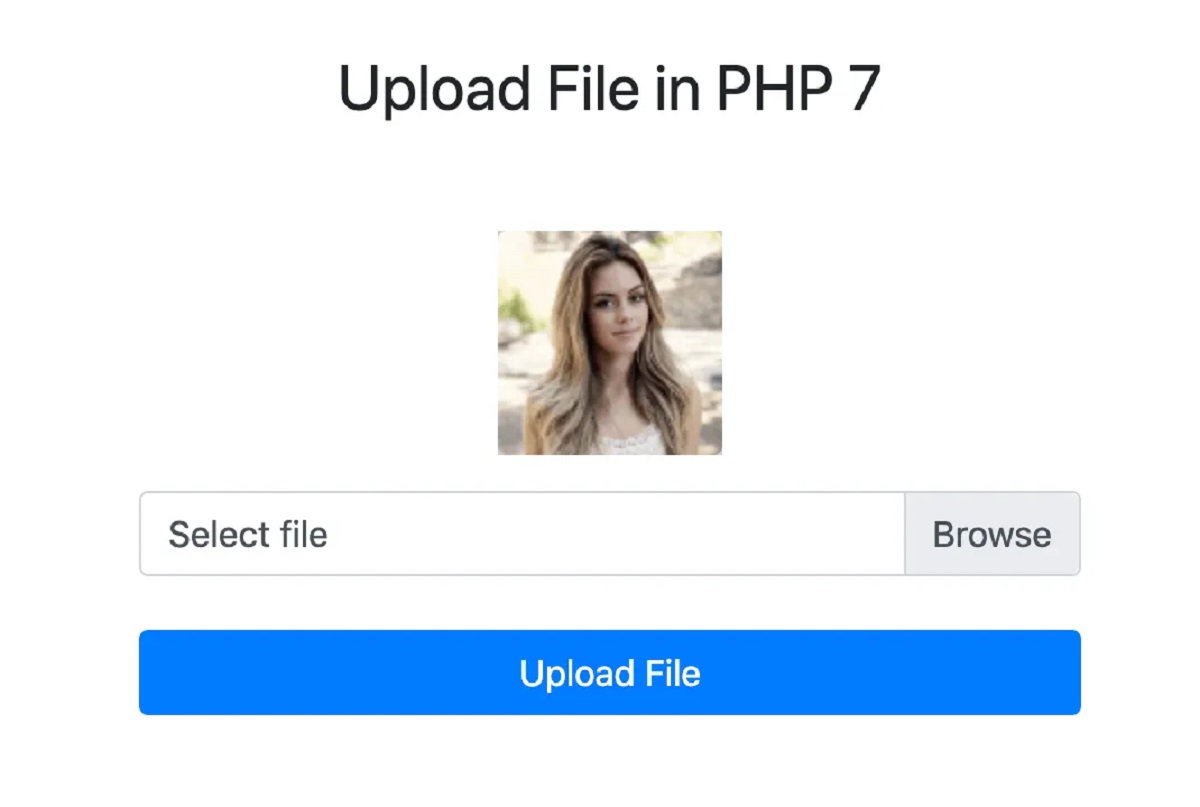Introduction
Welcome to the world of PHP programming! As a PHP developer, encountering errors is an inevitable part of the journey. PHP errors are messages generated when there is an issue in the PHP script, preventing it from running as expected. Understanding and effectively handling these errors is crucial for maintaining the stability and functionality of your PHP applications.
In this article, we will explore the world of PHP errors, their types, common causes, and how to handle them effectively. Whether you are a beginner learning PHP or an experienced developer, this guide will provide you with valuable insights into troubleshooting and debugging PHP errors.
PHP errors can occur due to various reasons, such as syntax errors, runtime issues, or logical flaws in your code. By identifying the types and causes of these errors, you can quickly resolve them and ensure your PHP applications are running smoothly.
So, let’s delve into the world of PHP errors and equip ourselves with the knowledge to tackle them head-on!
Definition of PHP Error
A PHP error refers to any deviation or issue within a PHP script that prevents it from executing as intended. When a PHP script encounters an error, it generates an error message that helps identify the root cause of the problem. These error messages provide valuable information to PHP developers, enabling them to fix the issue and ensure the correct functioning of the script.
PHP errors can occur due to a variety of reasons, such as syntax errors, runtime errors, or logical errors in the code. Each type of error serves as a clue to pinpoint the specific problem area in the PHP script.
When a PHP error occurs, its message typically includes details such as the type of error, the line number where the error occurred, and a brief description of the issue. This information is invaluable for debugging and troubleshooting the error.
PHP errors are essential for maintaining the quality and reliability of PHP applications. By identifying and resolving errors promptly, developers can ensure that the script functions as intended, minimizing any disruption or negative impact on the application’s users.
There are various tools and techniques available to assist in the management of PHP errors, such as error reporting, error logging, and error handling methods. Understanding the different types of PHP errors and their causes is key to effectively resolving issues and maintaining the stability of PHP applications.
In the following sections, we will explore the different types of PHP errors and delve deeper into their characteristics and causes. This knowledge will empower you to handle PHP errors efficiently and become a more proficient PHP developer.
Types of PHP Errors
PHP errors can be categorized into three main types: syntax errors, runtime errors, and logical errors. Understanding these types is essential for effectively diagnosing and resolving PHP errors in your code.
- Syntax Errors: Syntax errors occur when there is a mistake in the PHP code written. These errors are usually due to typographical errors, missing or misplaced punctuation, or incorrect syntax usage. When a PHP script encounters a syntax error, it fails to compile and execute. The error message typically includes details about the specific line of code where the syntax error occurred, making it easier to identify and rectify the issue.
- Runtime Errors: Runtime errors, also known as exceptions, occur during the execution of a PHP script. These errors may include division by zero, attempting to access undefined variables or functions, or working with files that are not accessible. Runtime errors halt the execution of the script, and an error message is displayed to indicate the problem. Understanding the specific nature of the runtime error can help in fixing the issue and preventing similar errors in the future.
- Logical Errors: Logical errors occur when the PHP code does not produce the desired or expected results. These errors do not throw any error messages or halt the script execution since the code is technically correct, but the logic or algorithm used is flawed. Logical errors can be challenging to identify as they often require careful examination and analysis of the code’s logic. Debugging techniques, such as using print statements or stepping through the code with a debugger, are often employed to identify and fix logical errors.
By understanding the different types of PHP errors, you will be better equipped to diagnose and resolve issues in your PHP code. In the following sections, we will explore each type in more detail, discussing their characteristics, common causes, and recommended approaches for resolution.
Syntax Errors
Syntax errors are one of the most common types of PHP errors that developers encounter. These errors occur when there is an issue with the structure or syntax of the PHP code. Syntax errors can range from simple typographical mistakes to more complex issues that violate the rules of the PHP syntax.
When a syntax error occurs, PHP is unable to interpret the code correctly, resulting in a failure to compile and execute the script. As a result, an error message is generated, indicating the specific line of code where the syntax error occurred.
There are several common causes of syntax errors in PHP code:
- Misspelled functions or variables: Misspelling a function or variable name is a common mistake that leads to syntax errors. PHP is case-sensitive, so even a small difference, such as using uppercase or lowercase letters incorrectly, can cause a syntax error.
- Missing or misplaced punctuation: Incorrect placement or omission of punctuation marks, such as parentheses, semicolons, commas, or quotation marks, can result in syntax errors. It is important to ensure proper syntax by double-checking the placement of these elements.
- Incorrect use of operators: Mistakes in using operators, such as assignment operators, comparison operators, or arithmetic operators, can lead to syntax errors. Using the wrong operator or forgetting to include required operands can cause the PHP script to fail.
- Incorrect function or method calls: Making mistakes in the syntax of function or method calls, such as passing the wrong number or order of arguments or not using parentheses correctly, can trigger syntax errors.
To debug and resolve syntax errors, it is crucial to carefully review the error message generated by PHP. The error message usually provides specific details about the syntax issue, including the line number and a brief description. By examining the corresponding line of code and understanding the syntax rules, you can identify and correct the error.
Additionally, using an integrated development environment (IDE) with syntax highlighting and error validation features can help catch syntax errors before executing the code, saving time and effort in the debugging process.
By paying close attention to syntax rules and using the appropriate tools, you can effectively handle and fix syntax errors in your PHP code. Taking the time to validate your code for syntax errors will ensure that your PHP scripts run smoothly and without any issues.
Runtime Errors
Runtime errors, also known as exceptions, occur during the execution of a PHP script, unlike syntax errors that prevent the script from running altogether. These errors may arise due to various reasons, such as invalid user input, incorrect file permissions, or undefined variables or functions.
Runtime errors halt the execution of the script and display an error message that provides valuable information about the issue. By analyzing the error message, developers can identify the type of runtime error encountered and the line of code responsible for triggering it.
Some common examples of runtime errors in PHP include:
- Division by zero: Attempting to divide a number by zero will result in a runtime error. This error occurs when the program encounters a division operation where the divisor is zero. Ensuring appropriate checks and handling such scenarios is essential to prevent runtime errors.
- Undefined variables or functions: If a variable or function is accessed or used without being properly defined or initialized, a runtime error will occur. It is important to declare and initialize variables and define functions before attempting to use them to avoid such errors.
- File-related errors: Runtime errors can also be caused by issues related to files, such as incorrect file paths, insufficient permissions to access or modify a file, or attempting to read/write a file that does not exist. Careful file handling and appropriate error checking can help mitigate such runtime errors.
- Memory allocation errors: PHP scripts can encounter runtime errors when there is insufficient memory available for allocating variables or executing certain operations. Proper memory management and utilization techniques, such as freeing up memory when it is no longer needed, can help prevent these errors.
To handle runtime errors effectively, developers can utilize error handling techniques, such as using try-catch blocks or predefined error handling functions in PHP, like try, catch, and finally statements. These techniques allow for graceful error handling and provide an opportunity to handle exceptions in a controlled manner.
Debugging runtime errors involves analyzing the error message and tracing back to the section of code where the error occurred. By thoroughly inspecting the code logic and data flow, developers can determine the cause of the error and implement the necessary measures to resolve it.
Remember, runtime errors are normal occurrences in PHP applications. By addressing them promptly and using proper error handling techniques, you can enhance the stability and reliability of your PHP code.
Logical Errors
Logical errors are a type of PHP error that occur when the code runs without generating any syntax or runtime errors, yet produces unintended or incorrect results. Unlike syntax and runtime errors, logical errors do not cause the script to halt or display error messages. Instead, they result in unintended behavior or incorrect output.
Identifying and fixing logical errors requires careful examination and analysis of the code’s logic and algorithms. These errors can be challenging to diagnose since the code is technically correct, but the approach or arrangement of the code logic leads to unexpected outcomes.
Common causes of logical errors in PHP code include:
- Flawed conditions or conditional statements: Incorrect or inadequate conditions within if-else statements or loops can lead to logical errors. It is important to ensure that the conditions are properly formulated to match the desired logic and expected outcomes.
- Incorrect data manipulation or calculations: Mistakes in data manipulation, such as incorrect calculations, incorrect assignment of values, or improper data conversions, can result in logical errors. Thoroughly reviewing the code’s arithmetic and data manipulation operations can help identify and rectify these issues.
- Improper array handling: Mishandling arrays, such as incorrect index references, incorrect array manipulations, or mismatched array operations, can lead to logical errors. Properly understanding the array structure and using appropriate array functions can help resolve such issues.
- Flawed or inefficient algorithms: Logical errors can also stem from flawed or inefficient algorithms. Inadequate logic flow, incorrect loops, or suboptimal algorithm designs can result in unexpected behavior or incorrect output. Performing algorithmic analysis and optimizing the code can help rectify these issues.
When encountering logical errors, employing debugging techniques is crucial. This may involve using print statements, debugging tools, or stepping through the code with a debugger. By observing the code’s execution and inspecting variable values at different stages, developers can identify the specific area where the logical error occurs.
After locating the logical error, modifying the code’s logic or algorithmic approach is necessary to correct the issue. Debugging and testing the modified code thoroughly will help ensure that the logical error is resolved and the desired results are achieved.
Logical errors are inevitable in the development process, even for experienced programmers. Embracing a systematic and logical approach to debugging and refining the code will help reduce these errors and improve the overall quality and reliability of your PHP applications.
Common Causes of PHP Errors
PHP errors can occur due to a variety of reasons, and understanding these common causes is crucial for effective debugging and resolution. By identifying the root causes, developers can implement proper preventive measures to minimize the occurrence of PHP errors in their code.
Here are some common causes of PHP errors:
- Improper syntax: Syntax errors are a common cause of PHP errors. Typos, missing or misplaced punctuation, or incorrect syntax usage can lead to syntax errors. It is important to pay close attention to syntax rules and double-check the code for any typographical mistakes or syntax violations.
- Undefined variables or functions: Accessing or using variables or functions that have not been defined or initialized can cause runtime errors. It is essential to declare and initialize variables correctly and ensure that all functions are defined before using them in the code.
- File-related issues: PHP errors can also occur when there are problems related to file handling. Incorrect file permissions, invalid file paths, or attempting to read/write to non-existent files can trigger errors. Ensuring proper file permissions, validating file paths, and performing necessary error checks can help mitigate such issues.
- Invalid user input: When handling user input, it is crucial to perform proper validation and sanitation to prevent unexpected or malicious data from causing errors. Insufficient input validation can lead to issues, such as trying to process invalid or unexpected data types, resulting in runtime errors.
- Poor error handling: Inadequate error handling techniques can make it challenging to identify and resolve PHP errors. Lack of error reporting, insufficient logging, or inadequate error messages can hinder the troubleshooting process. Implementing robust error handling mechanisms, such as error reporting settings, logging, and informative error messages, can greatly assist in debugging and resolving PHP errors.
Additionally, environmental factors, such as differences in PHP versions, server configurations, or software dependencies, can also contribute to PHP errors. It is crucial to ensure that the PHP environment is properly set up and that all required dependencies are present and compatible.
To effectively address the common causes of PHP errors, developers can employ various techniques. These may include rigorous testing and debugging practices, implementing coding standards and best practices, utilizing error handling mechanisms, and keeping up to date with PHP language updates and developments.
By addressing the common causes of PHP errors and implementing preventive measures, developers can enhance the stability, reliability, and security of their PHP applications.
How to Handle PHP Errors
Effectively handling PHP errors is crucial for maintaining the stability and functionality of your PHP applications. By implementing proper error handling techniques, you can quickly identify and resolve errors, ensuring a smooth user experience. Here are some approaches to handle PHP errors:
- Error Reporting: Configuring error reporting settings is essential for capturing PHP errors. By enabling error reporting, you can display error messages on the screen or log them to a file, providing valuable information for debugging purposes. It is recommended to enable error reporting during the development phase and disable it for production environments to prevent sensitive information from being exposed to users.
- Error Logging: Logging PHP errors to a file or a centralized logging system allows you to track and analyze errors more effectively. By storing error logs, you can review them at a later stage, identify recurring issues, and take appropriate action to rectify them. Utilizing logging libraries or frameworks can simplify the implementation of error logging in your PHP applications.
- Error Handling: Employing error handling mechanisms, such as try-catch blocks and exception handling, can help gracefully handle errors and prevent script termination. By catching exceptions and handling them appropriately, you can display custom error messages, perform specific actions, or redirect the user to an error page. Properly handling errors enhances the user experience and allows for more controlled error management.
- Proper Validation and Sanitization: User input validation and sanitization are crucial to prevent bugs and security vulnerabilities. By validating and sanitizing user input, you can ensure that the data being processed is valid and safe. Use built-in PHP functions or validate user input against specific data patterns to minimize the risk of errors resulting from invalid or unexpected input.
- Debugging Techniques: Debugging is an essential part of handling PHP errors. Using tools like print statements, debugging consoles, or integrated development environments (IDEs) with built-in debugging capabilities can help identify the cause of errors. Stepping through the code and inspecting variables at runtime allows you to track the flow and identify any issues that may lead to errors.
- Testing and Code Review: Thorough testing and code review practices are crucial for identifying and preventing errors. By conducting unit tests, integration tests, and code reviews, you can catch errors early in the development process. Automated testing frameworks and code review tools can assist in ensuring code quality and minimizing the occurrence of errors.
By implementing these strategies, you can effectively handle PHP errors and enhance the overall quality and reliability of your applications. Remember, error handling is not just about fixing errors; it is a proactive approach to prevent and manage errors, creating a better experience for both developers and users.
Debugging PHP Errors
Debugging PHP errors is an essential skill for identifying and resolving issues in your code. Efficient debugging techniques can save time and effort in the development process, allowing you to fix errors and enhance the overall functionality of your PHP applications. Here are some approaches to effectively debug PHP errors:
- 1. Error Reporting: Enable error reporting during the development phase to display error messages directly on the screen. This provides immediate feedback on the nature and location of the error, allowing you to quickly identify the issue.
- 2. Error Log: Configure PHP to log errors to a file or a centralized logging system. Reviewing error logs can help track recurring errors, identify patterns, and pinpoint problematic areas in your code.
- 3. Display Variables: Use print statements or var_dump to display the values of variables at various stages of your code. This can help identify unexpected or incorrect values that may be causing errors.
- 4. Step-through Debugging: Utilize an integrated development environment (IDE) with debugging capabilities to step through your code line by line. This allows you to monitor variables, evaluate expressions, and identify the precise location where an error occurs.
- 5. Error Suppression: Use the @ symbol before function calls or expressions to temporarily suppress error messages. This can be helpful when you want to handle errors manually or prevent them from interrupting the flow of your code. However, use this approach with caution, as it may mask underlying issues.
- 6. Code Review: Have another developer or colleague review your code. A fresh pair of eyes may spot errors or offer alternative solutions that you may have overlooked.
- 7. Testing: Write comprehensive unit tests to exercise different parts of your code and verify expected outputs. Testing allows you to catch errors early and validate that your code functions as intended.
- 8. Documentation and Research: Consult official PHP documentation, online forums, and developer communities for insights and solutions to common PHP errors. Many errors have been encountered and resolved by others, and learning from their experiences can help streamline your debugging process.
Remember that debugging is an iterative process. Start with the most basic and common debugging techniques, and gradually delve deeper if the issue persists. Be patient, methodical, and organized in your debugging approach, documenting and testing each change made to your code.
By employing these debugging techniques, you can effectively identify and resolve PHP errors, ultimately improving the quality and reliability of your PHP applications.
Conclusion
Handling and resolving PHP errors is an essential skill for any PHP developer. Understanding the different types of errors, such as syntax errors, runtime errors, and logical errors, provides valuable insights into troubleshooting and debugging techniques. By identifying the common causes of PHP errors and implementing proper error handling strategies, developers can ensure the stability and reliability of their PHP applications.
From detecting and fixing syntax errors to gracefully handling runtime errors and meticulously debugging logical errors, each step contributes to the overall optimization of your PHP code. Error reporting, error logging, and error handling mechanisms facilitate the identification and resolution of PHP errors, while proper validation and sanitization techniques minimize potential issues caused by invalid user input.
The debugging process plays a critical role in the error resolution journey. Employing effective debugging techniques, such as error reporting, stepping through code, and reviewing variable values, helps identify the precise location and nature of errors, enabling developers to make informed changes to their code.
Furthermore, documenting code, conducting thorough testing, and seeking guidance from the PHP community through forums and online resources facilitates continuous learning and improvement in handling PHP errors.
By continuously refining their error-handling skills, PHP developers can ensure the smooth functionality of their applications, enhance the user experience, and build robust and reliable PHP code. Embracing effective error handling practices not only helps developers resolve errors but also contributes to the overall maintenance and longevity of PHP projects.







